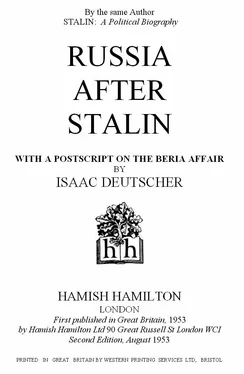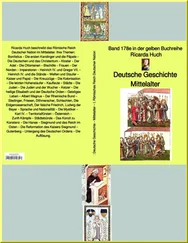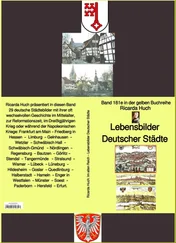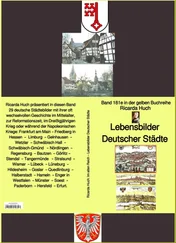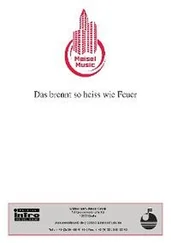In the East Marxism has absorbed the traditions of Tsardom and of Greek Orthodoxy. It has indeed become so thoroughly transformed that the West has almost forgotten that Marxism is its own authentic product and has come to treat it almost as if it were an exotic Oriental religion. [4] Only quite recently Professor Arnold Toynbee brought upon himself some criticism because he described Communism as a Western — or even a Christian — ‘heresy’.
In its prevalent Stalinist version Marxism has very nearly ceased to understand the West, and has itself become incomprehensible to the West. So profound has become the displacement and transformation of the greatest revolutionary and international movement of our age.
A striking parallel to this is found in the fortunes of early Christianity, which came into being as a Judaic ‘heresy’, as one of the extreme sects in the Synagogue, wholly in character with old Biblical tradition, and bent on converting to its beliefs primarily the Jews. Yet it was not given to Christianity to convert the people from whose midst its Man-God and its Apostles had come. Instead, Christianity moved into a disintegrating pagan world, whose mind was no longer dominated by the old gods, where Jupiter's thunder no longer made men tremble, and Neptune was no longer able to shake the seas.
It was in the temples of the old Graeco-Roman deities that Christianity made its conquests; and it began to breathe the air of their temples, to absorb and assimilate pagan myths, symbols, and beliefs. It came to dominate its new environment while it was adapting itself to it. It ceased to be a Jewish heresy; it ceased to live on the Nazarene memories of the Old Testament and on Jewish oral tradition. It ceased to understand the Jews and it became incomprehensible to the Jews. From the Judaic creed of the oppressed it became the religion of the Roman Caesars. But converting the Caesars, it also became converted to Caesarism, until the Holy See became an Imperial court, and until the hierarchical habits of the Roman Empire became its ecclesiastic canons.
In Christianity this evolution lasted centuries; in Bolshevism — only decades. If Lenin was the St. Paul of Marxism, who set out to transplant the movement from its original environment into new lands, Stalin was already its Constantine the Great. He was, to be sure, not the first Emperor to embrace Marxism, but the first Marxist revolutionary to become the autocratic ruler of a vast empire.
CHAPTER THREE
MARXISM AND PRIMITIVE MAGIC
Plekhanov, whom we have already quoted, wrote that if historical circumstances create the need for a certain political function to be performed they also supply the ‘organ’ capable of performing it. If the need for the ‘function’ is deeply rooted in the conditions of an epoch, the epoch is sure to bring forth not just one but at least several individuals with the minds, the characters, and the wills needed to perform the function. As a rule, circumstances allow only one or, at the most, a few of a whole group of potential leaders to move to the front of the stage; and so the historical record contains the evidence only of their capabilities and deeds. The fact that one individual has already filled the place of the actual leader debars other potential leaders from revealing themselves — they are condemned to remain in obscurity.
Plekhanov applied this theory not only to politics. He argued, for instance, that if Leonardo da Vinci had not lived to produce his masterpieces, this would not have altered the broad trend of the artistic ideas of the Renaissance, because this trend had sprung from the social conditions and from the intellectual and moral climate of the age. Only the ‘individual features’ of the trend would have been different. The same is true of the great scientific discoveries which bear the name of a single man. Such discoveries are the outcome of the stage of development which a certain branch of science has reached at a particular time, and it is more or less a matter of chance which individual actually makes them. Indeed, it often happens that several leading scientists make a discovery almost simultaneously and independently of one another.
To return to political history: if, for instance, a certain General Bonaparte had been killed in a battle before he had time to become First Consul and Emperor of revolutionary France, another general would have filled his place with essentially the same effect. There were in France at that time several military leaders capable of this. Bonaparte's rise prevented those potential Napoleons from becoming actual ones. The ‘organ’ capable of performing the historical ‘function’ had been supplied; and there was no room for duplication. That ‘function’ consisted in giving an authoritarian and yet revolutionary government — the rule of a ‘good sword’ — to a nation which had tried out and abandoned the republican-plebeian democracy of the Jacobins but still refused to countenance the restoration of the pre-revolutionary order.
Plekhanov's argument has given rise to considerable controversy, into which it is not proposed to enter here. Suffice it to say that even among Marxists, who broadly accepted Plekhanov's view, there have been many ‘deviations’ from it.
Trotsky, for instance, in his History of the Russian Revolution, attempted to strike a balance between the general Marxist philosophy of history — which sees the collective forces of social classes and groups as the decisive agents in any historical process — and his own view that Lenin's individual role in the Russian revolution was unique, that is to say that no other Bolshevik leader would have been qualified to perform it. However, Trotsky ‘deviated’ even further from the classical Plekhanovist view. In a private letter to an old Bolshevik friend which he wrote from his exile in Alma Ata, he stated bluntly and without inhibition: ‘You know that without Lenin the October Revolution would not have won.’ [5] The writer found this letter in the Trotsky Archives at Harvard.
Thus, while in his published writings he tried to adjust his own view of Lenin's role with Plekhanov's theory, privately he appears to have taken an attitude diametrically opposed to it.
The story of Stalin's career seems calculated to resolve the controversy in favour of Plekhanov.
Hardly any of Stalin's contemporaries, comrades and rivals alike, regarded him at first as in any way suited to the role he was to play. He appeared to them to have none of the gifts which make a great leader, Bolshevik or otherwise. His ascendancy came as a complete surprise. Trotsky wrote of Stalin that he detached himself like a shadow from a Kremlin wall to succeed Lenin. This impression was shared by Zinoviev, Kamenev, Rykov, Tomsky, Bukharin, and also by nearly all the leaders of the non-Russian Communist Parties. [6] This was, of course, even more true of the anti-communists. Thus the Menshevik Sotsialisticheskii Vestnik wrote after Stalin's death: ‘We, who have known personally and often quite closely the leaders of the Bolshevik Party since 1903, and who have met also Stalin as early as 1906 and later have wondered more than once how it happened that all of us… could so underrate him. Nobody thought of him as an eminent political worker…’ (Sotsialisticheskii Vestnik, February-March 1953.)
Lenin alone was more discerning in his appraisal of the man, for although eventually he advised his followers to depose Stalin from the post of the party's General Secretary, he nevertheless described both Stalin and Trotsky as the ‘two ablest men’ in the Central Committee.
Why was it that nearly everyone who had known Stalin before and during his rise was so utterly wrong about his chances?
Читать дальше
